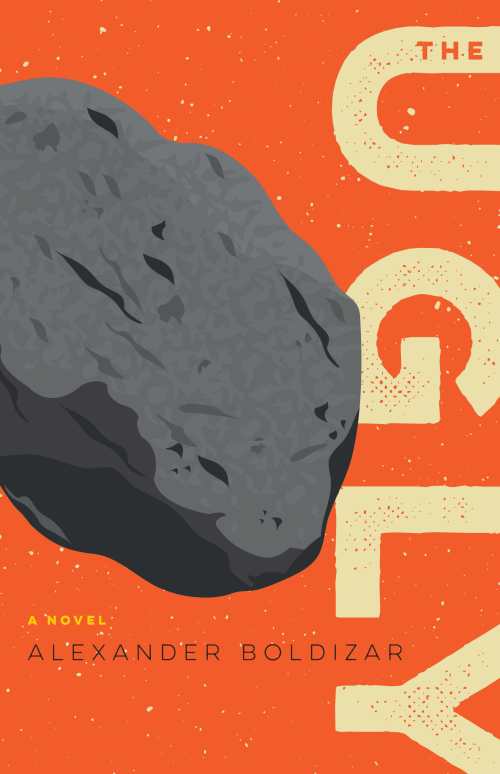Former Lawyer, INDIES Finalist Answers a 16-Year-Long Call to Be a Novelist
Editor’s Note: The subject of this feature was chosen from #INDIEStory Twitter pitches among finalists in our INDIES Book of the Year Award contest.
It’s a nerve-racking time here at Foreword: we’re waiting not-so-patiently for a few hundred judges to tell us which of the 2016 Foreword INDIES Book of the Year Awards Finalist will be named winners. In the meantime, we sought out to learn some backstories about some of the finalists, inviting them to tell us their #INDIEStory on Twitter.
One particularly intriguing story:
https://twitter.com/Boldizar/status/864182696368521217
That came from Alexander Boldizar, author of The Ugly, a “comedically absurd but also introspective” novel, which was named an INDIES finalist in the categories of humor and literary fiction. We followed up with Alexander to dive deeper into his #INDIEStory.
Why did you leave the practice of law to become a novelist?

Alexander Boldizar: 'I came to see storytelling as the most sophisticated form of thinking.'

I didn’t quit law in order to write as much as I quit in order to write The Ugly. I started the novel while still at law school. I was publishing law review articles and dating a professor, and in the process got turned off by the whole idea of law. I wanted to poke at it. I came to see storytelling as the most sophisticated form of thinking. I realized I loved ideas that are too complex to put in a box, whether the box is a bumper sticker or the rules of civil procedure or a tome like Being and Time. Heidegger never wrote the second half of Being and Time because, he said, he realized that Rilke had done it all better through poetry.
I came to see ideas as being meaningful only when they interact with people—real conflicted people, not Ayn Rand-style cardboard people—and stories as the only way to touch truly complex, open-ended ideas. It’s probably why I dislike plays: they tend to be closed. The same is true for law.
If you can grasp an idea in its totality, it’s not a very interesting idea. To me, an interesting idea is one which can only be touched, not held, because it’s full of aporias and conflicting levels. Novels of ideas can get a bad rap sometimes because writers start off with prepackaged answers they want to present to the world. That leads to allegory or therapy or propaganda, not literature. I wanted a novel of ideas that started only with questions or approaches to thinking. And the characters in the book, though a little extreme, are real people with motivations that vary across situations. If they were flat, then both the story and the ideas would be flat.
How did you spend the sixteen years it took you to publish the book? Were you working on it the whole time?
The first draft took me six months. Then I spent sixteen years editing. I practiced law in San Francisco and Prague, and went through a crazy variety of jobs and countries (an art gallery director in Bali, a pseudo-geisha in Japan, a hermit in Tennessee, a paleontologist’s helper in the Sahara, a porter in the High Arctic, a police-abuse watchdog in New York City, an editor and art critic in Jakarta and Singapore, a consultant on Wall Street, and more).
I wasn’t revising the entire sixteen years, of course. Between a wild divorce that sapped my creative energy and becoming a full-time single dad that was the best thing to ever happen to me but left me with little time, life happened.
How did all of these experiences impact The Ugly?
The Ugly is a product of my younger self, and while editing I tried to stay true to who I was when I wrote the first draft, rather than trying to adapt it to who I am today. But the advantage of editing a book for sixteen years was that I really had a chance to learn from my mistakes. I’m a big believer in self-doubt. To write a book, you need to be confident enough to push through, yet you need enough self-doubt to make sure that you’re not just indulging yourself. When I worked as an art critic, I found that artists could get away with work about their own personal mythology because they were only asking for five seconds, not ten hours, of a person’s day. With fiction you have a much bigger debt to your audience. And being East European, absurdist satire just seems to happen.
At the same time, however, I wanted to write a completely different sort of book. To make the thematic layer of the book work I knew I had to break some of the rules of fiction, even though those rules exist for a good reason at the plot level.
Once you’re James Joyce, you can write Ulysses. Some people will understand it, some won’t, but those who don’t won’t blame Joyce for not being able to get it. But you don’t get that credit until you’ve earned it, so you need to make sure you’re also doing your job as an entertainer. That’s what makes it both fun and difficult.
The sixteen years gave me the time to overcome some of my own personal blocks, to mature enough to find ways to bridge that gap between plot and theme, confidence and doubt, entertainment and authenticity.
Writing was obviously a journey; what about the process of getting it published?
Some of the law students with whom I went to school already had plans for which island they were going to retire on, but in writing it’s been my experience that very few things are linear. Like most other people, I first searched for an agent. You can’t imagine the number of agents who told me either “I love the book, if you cut the Africa scenes,” or “I love the book, if you cut the Harvard scenes.” They wanted two separate books. The whole thematic balance of the novel requires that juxtaposition, and if you were to cut one the book would be a different animal.
I was struck by how many agents sensed something special in the book, offering me representation on the condition that I make a change that was central to what I was trying to do. I generally trust my editors, but not when the change is the heart of the novel. Eventually I found an agent who agreed, and she shopped the book around in 2008 to the Big 6 (this was before Penguin and Random House merged). It was under consideration when Lehman Brothers collapsed, the financial crisis hit, and publishers stopped nearly all new purchases. My agent said, “unlucky timing” and we parted ways.
The Ugly sat on my hard drive while I went through my divorce, etc. After climbing out the other end of that tunnel, a couple of years ago, I approached my first small publisher, unagented. A friend recommended Brooklyn Arts Press, I used to live in Brooklyn, and so I sent them The Ugly when they opened up for new submissions. They published a lot of unorthodox stuff, mostly poetry and art books, but everything was high quality, and they seemed to really care about the art and literature side more than the financial side. And sure enough, shortly after The Ugly came out, one of their titles won the National Book Award for poetry (The Performance of Being Human, by Daniel Borzutzky).
Thank goodness for small presses—they do most of the heavy lifting when it comes to trying new things in fiction. And they don’t stop fighting for their authors. I just found out this week that The Ugly is getting its first translation, into Czech.
What’s next for you?
I have a first draft of a second book, but my focus has turned to smaller things. The next book is science fiction, but it’s also basically a father-son story. The working title is The Man Who Saw Seconds. The themes have gotten smaller and more manageable. It’s more of a pure, fun story, though I can’t help but add dark and satirical elements.
The Ugly has been winning a lot of awards, but it’s also a difficult book. (Which may be a bit unfair to the reader given that it starts with two mountain men throwing boulders at each other.) I had another author recently write me that it was the most challenging book she’d ever read, adding, “It made me think…so much my head hurt. I feel as though I have fought a war, got an education, had a tumultuous love affair, and have a new best friend, but one who I hesitate to turn my back on.” I have a feeling that my third will go back to something like The Ugly; a book like that needs the time for the pressure to build up again.

Seth Dellon is the Associate Publisher of Foreword Reviews. You can meet him or hear him speak at most of the events Foreword attends, and contact him at seth@forewordreviews.com.
Seth Dellon
